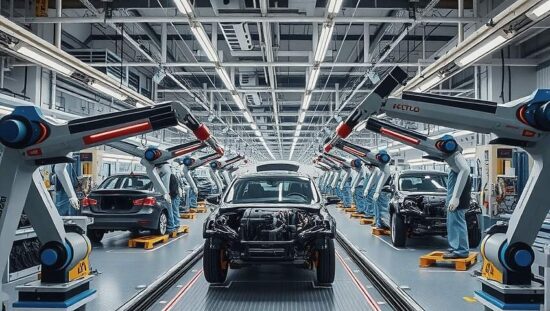Bosch CEO Stefan Hartung has cautioned against Europe’s planned phase-out of internal combustion engine (ICE) vehicles, arguing that the current infrastructure and consumer demand are not yet sufficient to support a complete transition to electric mobility. In an interview with “Der Spiegel”, Hartung warned that a definitive exit could ironically lead consumers to purchase more ICE vehicles in the years leading up to 2035, potentially hindering climate goals and shrinking the automotive market.
Hartung also dismissed proposals to simply postpone the deadline for the combustion engine ban, stating that setting fixed percentages or dates for a prohibition isn’t the optimal approach. He believes that reducing the CO2 footprint can be achieved by 2045 or 2050 without such rigid targets, emphasizing the importance of considering the source of electricity used for charging and the fuel used for ICE vehicles. He urged immediate clarification on these factors, asserting that “in five years, it will be too late.
The call comes amid ambitious European climate objectives, with the EU aiming for climate neutrality by 2050 and Germany accelerating its target to 2045 following a ruling by the Federal Constitutional Court. The European Court of Human Rights has also affirmed that adherence to a fairly distributed CO2 budget is crucial for maintaining the 1.5-degree Celsius threshold. The potential for legal action based on excessive CO2 emissions complicates the picture, with rulings suggesting earlier phase-outs may become necessary.
Hartung expressed particular concern about the impact on automotive suppliers, especially in the face of growing competition from China. He predicts that while ICE vehicles will continue to be produced after 2035, current regulations will effectively prevent their sale in Europe.
Current regulations, part of the “Fit-for-55” package, mandate a gradual reduction in permissible CO2 emissions from new vehicles sold in the EU, culminating in a zero-emissions target by 2035 and effectively prohibiting new ICE vehicle sales. The gradual decline of permitted CO2 emissions, which currently stands at 93.6 grams per kilometer, is intended to limit global warming to slightly above two degrees Celsius. Recent rulings from international courts have highlighted potential liability for states exceeding the 1.5-degree Celsius threshold, further underscoring the complexities of the transition.





